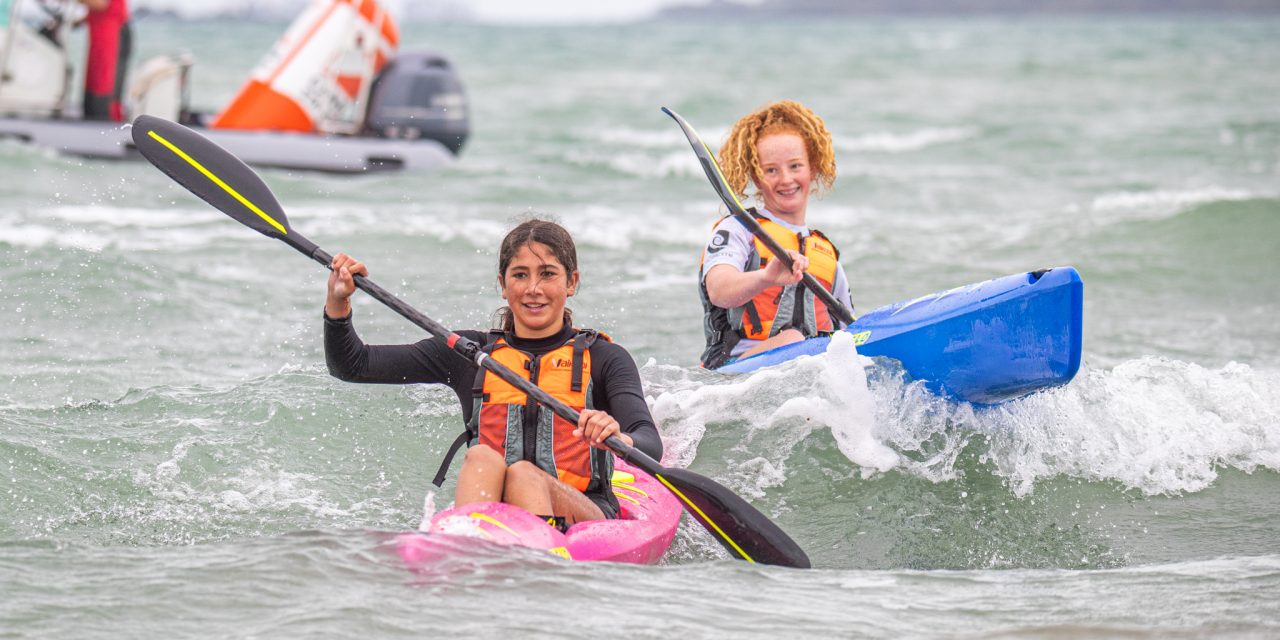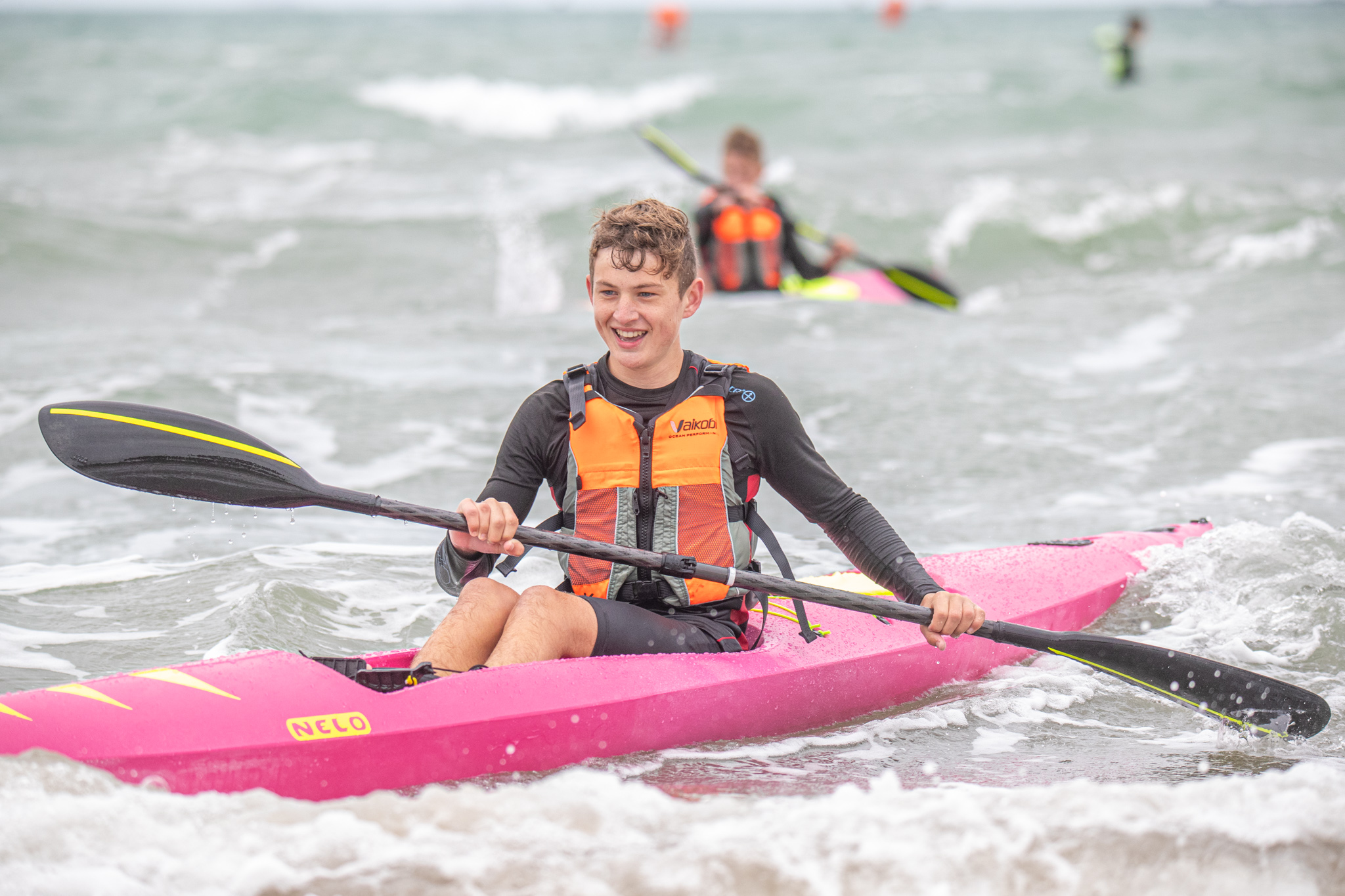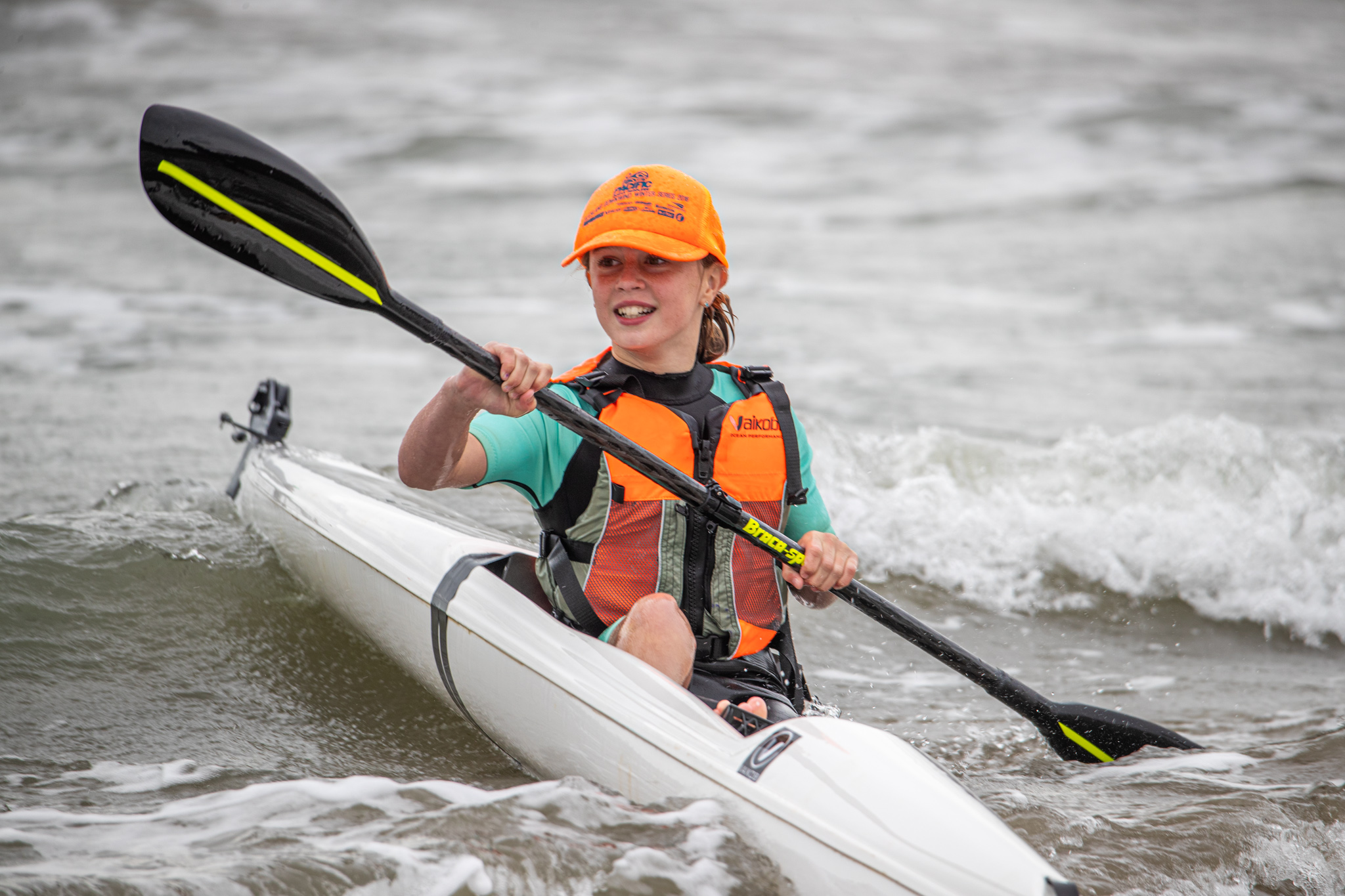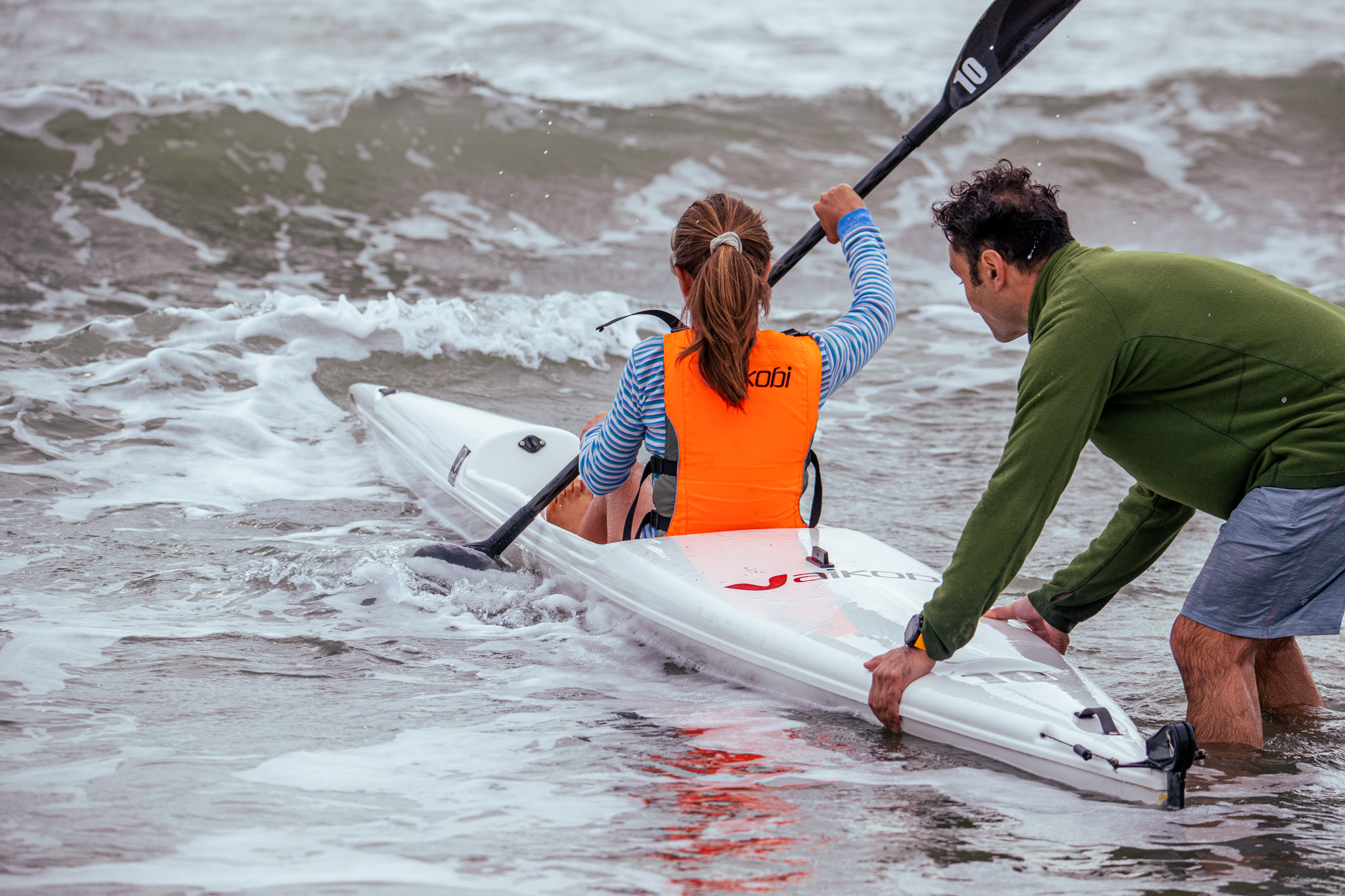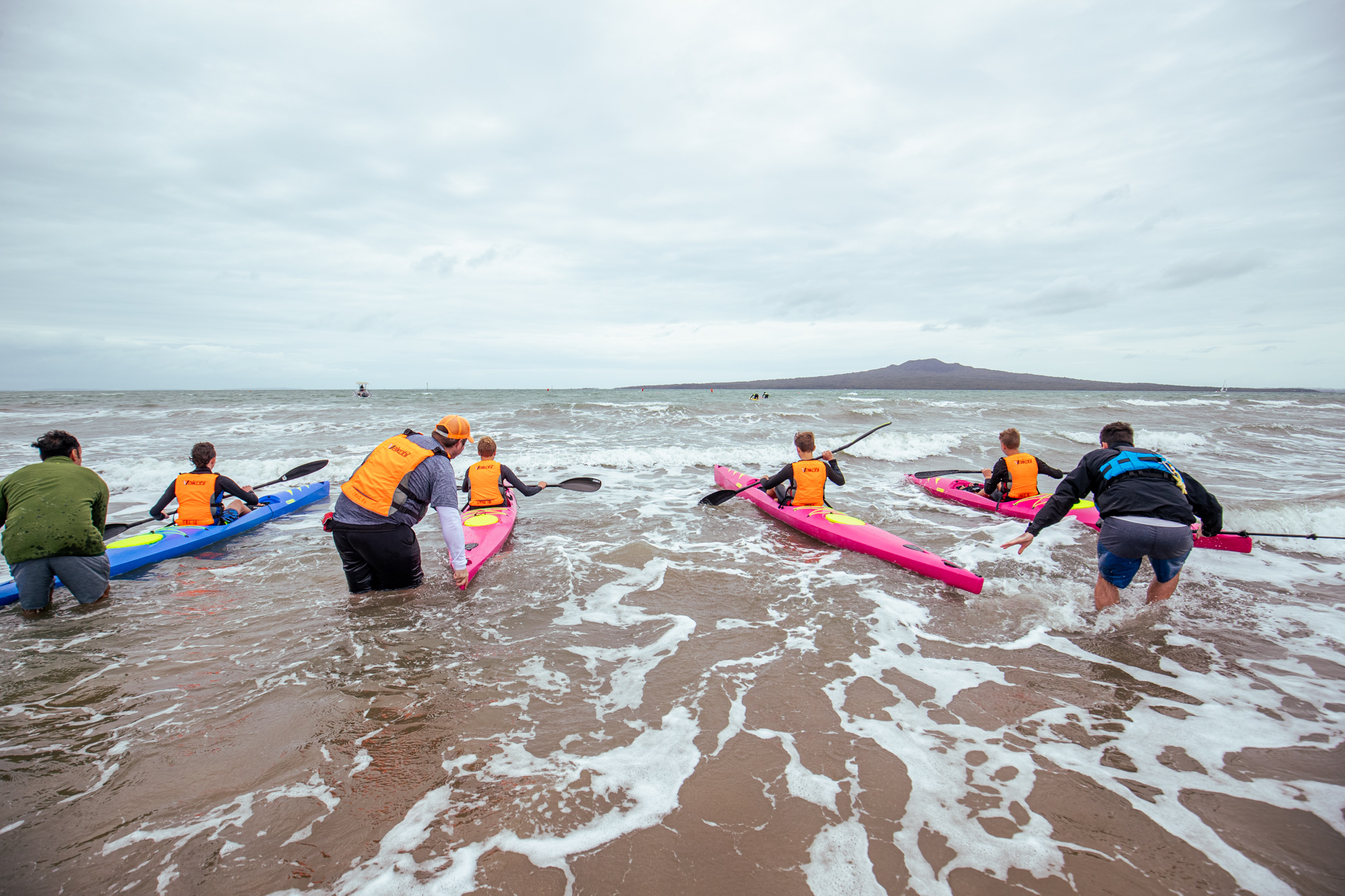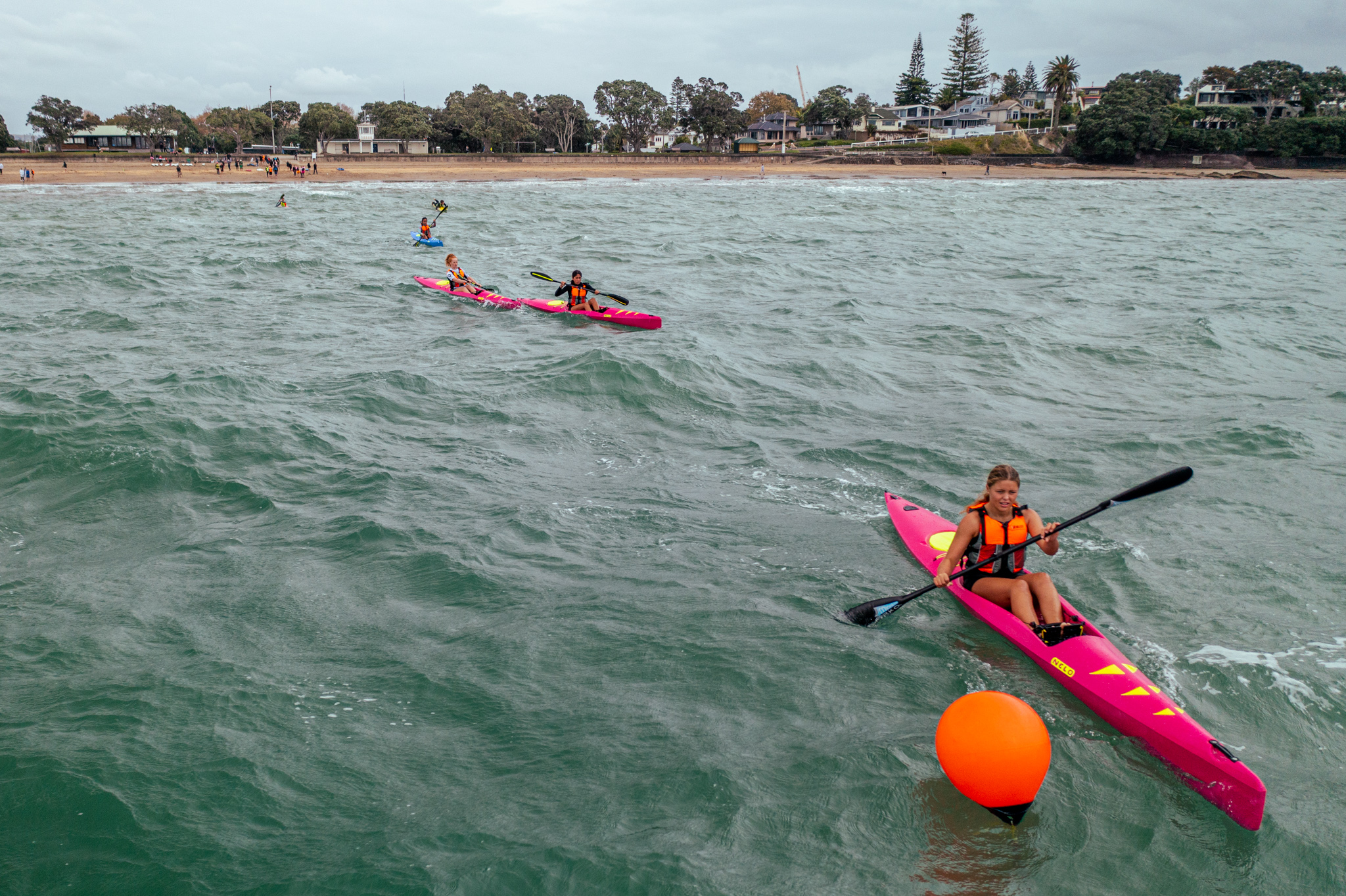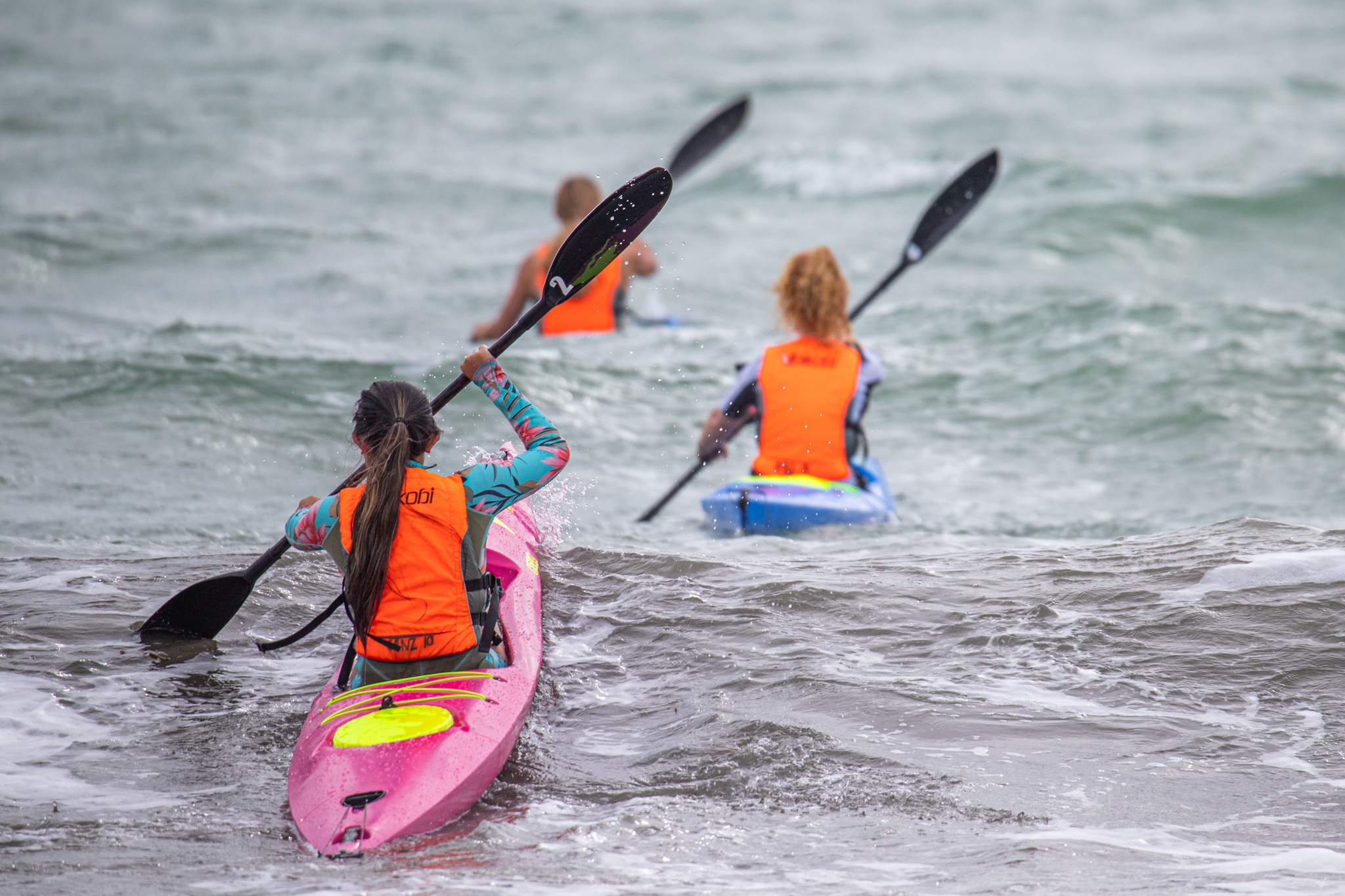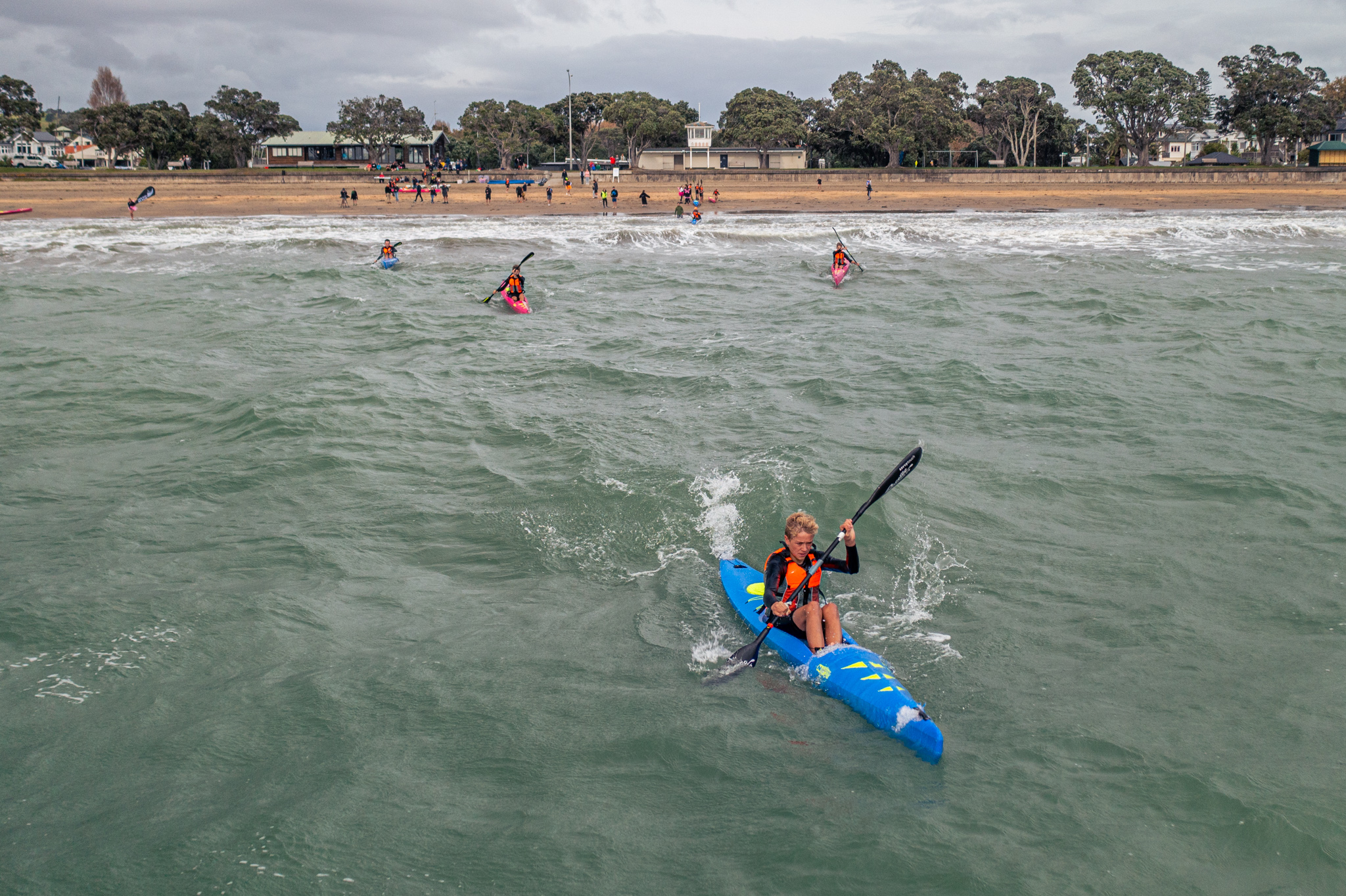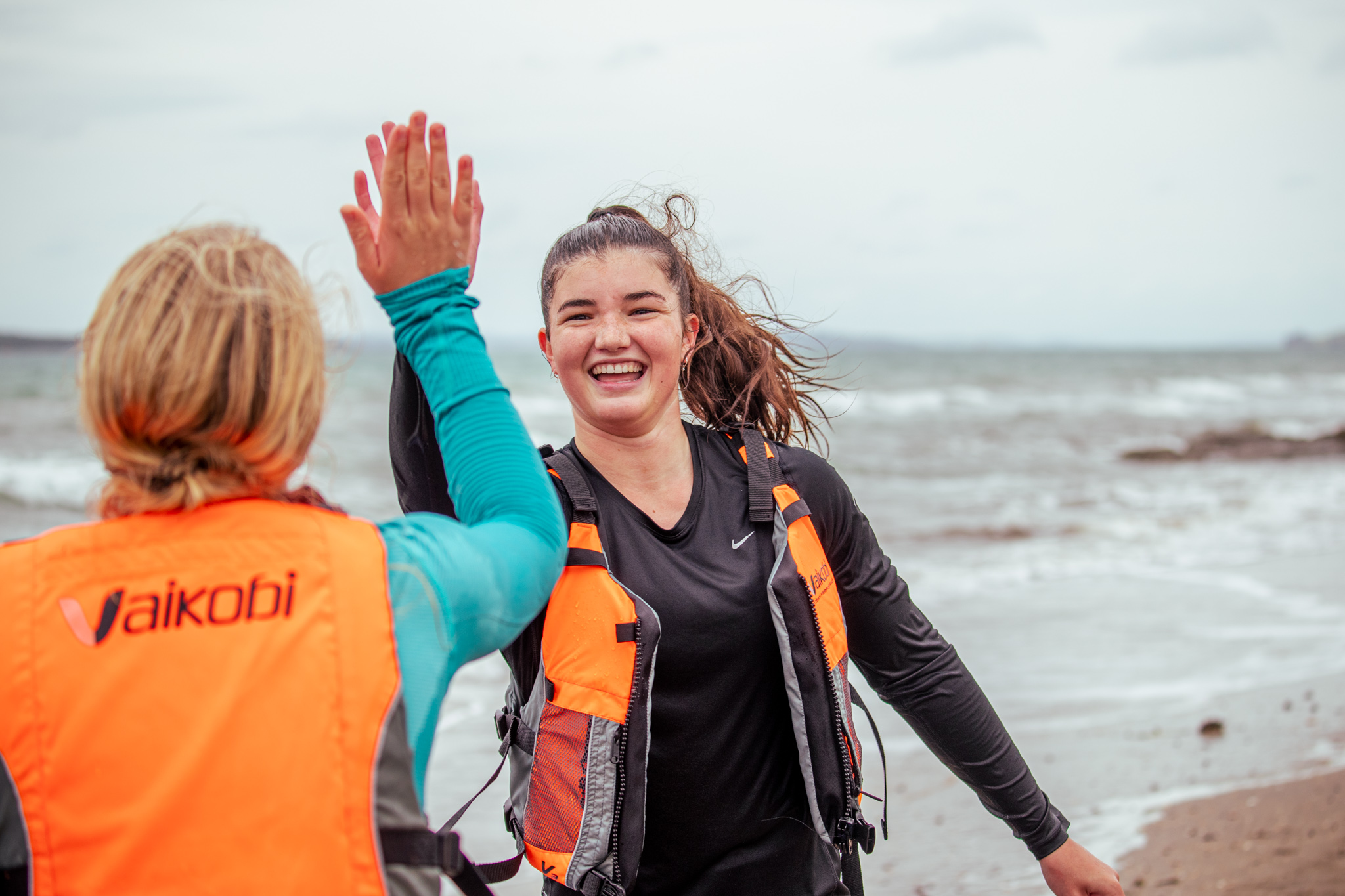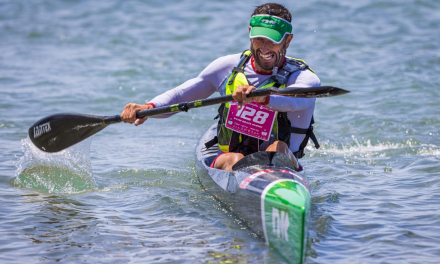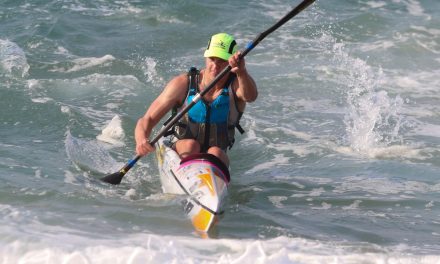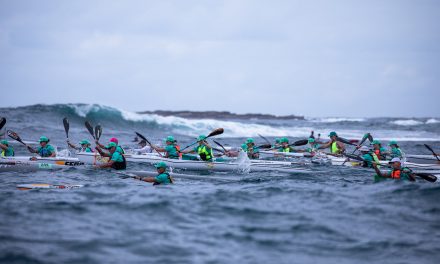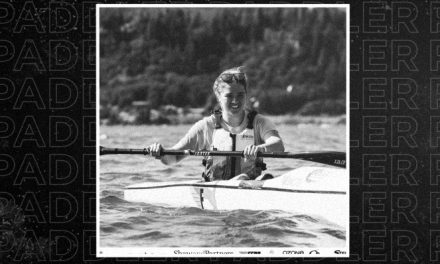PLANS UNDERWAY TO EXPAND NEW ZEALAND’S BEGINNERS PADDLING PROGRAM
It was the kind of morning that would see most paddlers stay in bed.
Overcast and windy – certainly not the picturesque conditions organisers of the first ever Kahawai event were hoping for at Auckland’s Narrow Neck Beach, one morning back in May.
But what happened in the water was monumental.
“Basically, the idea is to find some common ground between a few of the different disciplines and create a shared pathway.” Canoe Racing New Zealand CEO Tom Ashley says.
“And this seems to work.”
The ‘Kahawai’ program is Canoe Racing New Zealand’s brainchild to get more kids into paddling.
And if its pilot event was anything to go by, they’re onto a winner.
Around 40 kids from a variety of paddling backgrounds – including sprint, surf lifesaving and school programs – took part in the round-the-cans races that are the hallmark of the initiative.
At the centre of it all – an emphasis on fun.
“We’ve got to find a way to make it accessible,” Ashley says.
“Not everyone will have the patience to spend the 60 to 100 hours or whatever it takes to balance in a K1.
“There are some core skills that are really fundamental to all types of paddling.
“Just having something that is accessible, to get good numbers of kids to an event to experience paddling and fall in love with the sport and meet people, that’s awesome.”
“The more people paddling, the better.”
All participants get multiple races, and therefore, more opportunities for feedback and advice on how they can improve.
Crucial to that development is the style of boats being paddled.
Canoe Racing New Zealand settled on an open-cockpit, stable surfski.
It made a considerable investment to purchase a fleet of them for use in Kahawai, but participants are also able to use their own – permitted they fall in line with the program’s equipment regulations.
“The boats that we’re are using are awesome for the purpose,” Ashley explains.
“They certainly wouldn’t handle massive waves, but that’s not the point either.
“Firstly, it’s safer… but secondly, the psychologically of it is completely different.
“If you go out in rough conditions and you’re not worried about sinking your boat and having to swim back to shore, you’ll enjoy yourself more and be more confident to try more stuff.”
“I remember being terrified the first few times I paddled and raced my sprint boat in rough water.
“You’re sitting on the start line getting waves into the boat and you’re worried about falling out and getting embarrassed or sinking the boat.
“With this, it’s a completely different sensation… you can just get out there and send it and have fun.”
Kahawai is a natural extension of Canoe Racing New Zealand’s existing efforts to attract kids to paddling.
Its ‘Try, Learn, Explore’ course has proven successful at both a club level, as well as in schools.
A large number of those participants made the progression to the inaugural Kahawai event.
“We had some Under 12’s who had done a four-week program, paddling twice a week.
“Then some slightly older kids who had done an eight-week program and a little follow up after that.
“Everyone managed to get around the course and everyone finished their races.
“I think we can cater to quite a lot of conditions and quote a lot of people with the format.”
And that audience will soon spread even wider, with pathways for expansion are already being explored.
Canoe Racing New Zealand will host discussions with clubs from around the country this weekend, outlining the way forward for the development of paddlesports.
“We’re working on an event kit so that anyone can run an event,” Ashley says.
“We would love to see these all over the place.”
But it’s also looking abroad.
Early talks have been held establish similar programs in other nations, including Australia.
For Canoe Racing New Zealand, it all comes back to its core desire – to simply get more people on the water.
“It’s just got to be really important to get as many people as we can to fall in love with the sport.” Ashley says.
“Getting more kids doing all the disciplines is great. Whether they carry on racing or they just want to paddle recreationally, it all supports the industry.”
“I think it’s a win-win… there’s no downside to pushing this kind of thing.”

